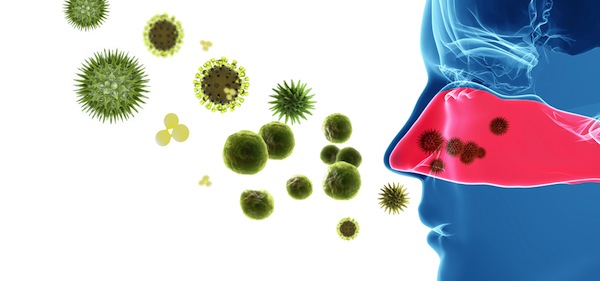Many people who come down with a cold say they’ve got the flu. But the common cold and the flu are not one and the same.
While cold and flu symptoms can be similar, having the flu is much more serious – it can last for weeks and lead to pneumonia, which may result in hospitalisation and even death. As such, it’s important to know the difference, so you can take the right course of action to protect your health and that of others.
Cause
Cold: The common cold can be caused by 200-plus types of viruses. That’s why it’s been impossible to formulate a vaccine against cold infections.
Flu: Influenza (flu) viruses are classified as type A, B or C, with A and B mostly affecting humans. However, these viruses are constantly changing (mutating) from year to year – which is why a new vaccine needs to be formulated each year, and those at risk, vaccinated annually.
Symptoms
Cold: A mild viral infection, the common cold is not usually associated with complications. Typical symptoms include a runny nose, sore throat, sneezing, cough, loss of appetite, and nausea, vomiting and earaches (particularly in children).
Flu: Some flu symptoms are similar to that of the common cold, but they may be much more severe. You have the flu if you have cold symptoms, plus any one or more of these: sudden onset of high fever (38–40°C), muscular pains, shivering attacks (often severe) and extreme fatigue that starts early on in the infection. Pneumonia, which can become serious and even life-threatening, is a potential complication.
Duration
Cold: Symptoms typically last from seven to 10 days.
Flu: Symptoms usually last for several weeks.
Prevention
Cold: Frequent hand washing, plus additional tips described on YourLifeChoices.
Flu: While the tips to prevent a common cold will also help, getting immunised against flu viruses is the most effective way to protect yourself. It’s a myth that you can get the flu from a flu shot.
Treatment
Cold: There is no cure, but you can get relief from your symptoms by using over-the-counter cold-and-flu remedies. Your pharmacist can offer you advice.
Flu: Again, there is no cure. You may use the same symptom-relief remedies as for a cold. However, the best things are to keep hydrated, monitor your temperature regularly, limit contact with others and get lots of bed rest.
When to see your doctor
Since young children, elderly people, pregnant women and those with long-term medical conditions are at greater risk of flu-related complications, it is recommended that they get the flu shot each year.
If you suspect you have the flu, it is a good idea to get checked by your doctor, especially if you fall into the above risk groups.
Read more about the flu vaccine at NPS Medicine Wise, including whether you’re eligible for a free shot.

